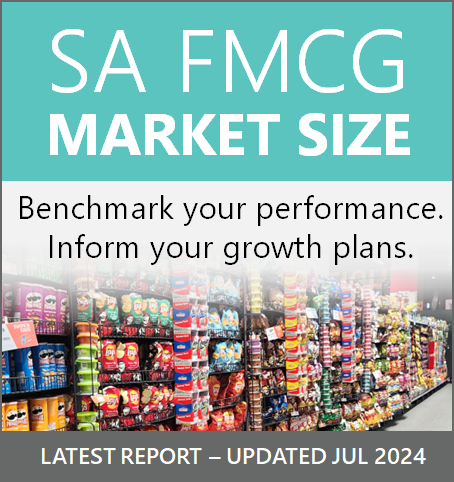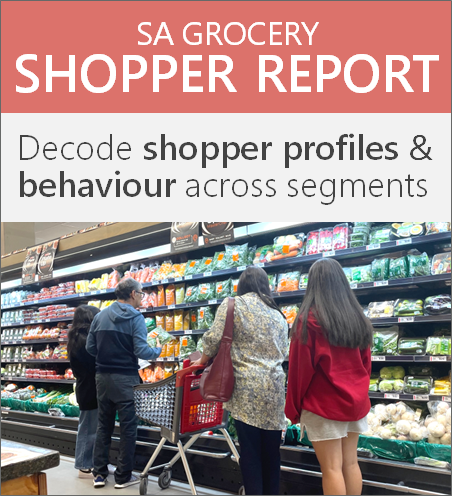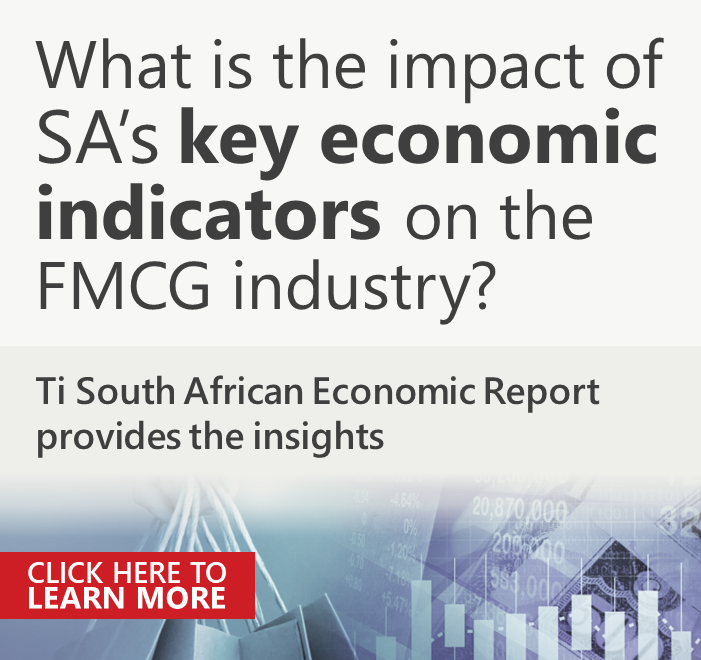
THIS ISSUE: 29 Apr - 05 May
Welcome to another unsettled week in the fiscus… what? No, it’s not a type of tree. Where were we? Ah yes, a threatening inflation landscape and a supply chain that is barely hanging together. But some truly great news on the CSI front, from several businesses, including Shoprite, Coke and Tiger Brands. And convenience comes to the fore – opportune, as we’re running our Convenience Retail Online Briefing on 12 May. Sign up for that and enjoy the read
YOUR NUMBERS THIS WEEK
RETAILERS AND WHOLESALERS
-
Clicks Placebo effect
A solid set of interims from Clicks for the six months through February, with Group turnover +9.0% to R19.6bn, and operating profit +7.5% to R1.5bn. This was boosted by further SASRIA insurance payments following the July 2021 unrest, with 53 stores needing repairs and being something of a drag on CAPEX. Performance was also boosted by the rollout of COVID-19 vaccinations, and the key categories of pharmacy and front shop health showed strong continued growth. Beauty and personal care roared through, growing +10.1%, indicating that beauty products – especially colour cosmetics at +12.6% – will be a mainstay of post-pandemic growth. On the downside, a slight decline in the baby category due to import delays is a bit of a worry, as rivals Dis-Chem and Checkers rollout their specialist baby stores. And UPD’s -3.6% decline in turnover was disappointing, too. Online sales remained steady at 1.3% of retail sales, another area for future effort as South African punters continue to embrace e-commerce.
Comment: For a more comprehensive take on these results, have a look at the excellent summary provided by our Research team over here.
-
-
Prices Masters of all they survey
As South Africans nervously eye their rising grocery bills and wonder where cuts can be made, our colleagues at Business Tech publish a timely and interesting price survey based on a private label basket of 18 like-for-like food and non-food items across five major grocery chains, viz Woolworths, Checkers, Pick n Pay, SPAR and Food Lover’s. Bottom line: Pick n Pay’s venerable No Name brand takes pole vs Checkers’ Housebrand, but only by R3 across the value basket. Interestingly, Pick n Pay’s premium PnP brand comes in second-costliest, but Woolies wins that race hands down with a R100 lead. The full rankings then: Pick n Pay (No Name), Checkers, Food Lover’s, SPAR, PnP and Woolies, from cheapest to priciest. Business Tech do point out that the survey doesn’t take quality into account, nor are pack sizes always comparable across retailers.
Comment: As food inflation bites, such comparisons will not be of interest only to us hardened professionals but will increasingly inform the day-to-day calculations of ordinary South Africans at their kitchen tables. And if you want to know more about the rise of private brands, look at our cracking report here.
-
-
In Brief Marriages of convenience
Dis-Chem has long shown itself to be up for a bit of subtle trollery, and so it proved this week when rival Clicks released its interims, see above. Dis-Chem chose that particular day to release a trading update in which it announced that HEPS would likely be up somewhere between 25 and 30% – admittedly on the back of some acquisitions. Clicks came through at 10.2% by comparison. In other news, the discount chemist has launched a WhatsApp service for punters wishing to take their relationship with the retailer to the next level. On to Shoprite, who in partnership with the Nelson Mandela Foundation is busily distributing 600 garden-in-a-box starter kits in Mpumalanga, Limpopo, North West and the Eastern Cape. As part of its CSI focus on food security and nutrition, this will help in establishing gardens that will eventually feed over 2,400 of South Africa’s neediest, sustainably. Finally, a 24-hour Woolworths Foodstop has been added to the recently upgraded Engen Rietvlei Convenience Centre in Tableview.
Comment: C-stores like Woolies Foodstops are a vital and growing segment of our retail universe. To learn more about the sector, read our analyst’s article here or better yet, sign up for our Convenience Retail Online Briefing taking place live on 12 May.
-
-
International Retailers Like Uber for convenient existing service
In Australia, CEO of Woolworths (no, not our one) Brad Banducci has thrown his weight behind calls to increase wages in line with inflation, fast becoming the defining feature of this late-COVID economic ambit. “We’re very clear that while we need to deliver value for our customers, we also need to make sure that our team can have salaries and wages that keep pace with the underlying increase in the cost of living,” says Mr B. In the US, Amazon has opened its first suburban convenience store, a larger-than-usual 6,150 square foot outlet offering over 1,300 popular or essential lines, in Mill Creek, Washington, outside Seattle, where Kurt Cobain has had a busy post-mortem career turning in his grave. Finally, in the UK, Tesco has teamed up with like-Uber-but-for-eats Uber Eats to offer grocery deliveries from 20 stores across the UK, in locations selected entirely for their evocative names, like Edinburgh, Bradford, Portsmouth, Norwich, St Albans and Letchworth.
Comment: Food inflation – caused by a perfect storm of factors from COVID-related inefficiencies, to the Chinese lockdown, to Russia’s invasion of Ukraine – is a worrying and destabilising trend globally, which governments and businesses alike will need to address.
MANUFACTURERS AND SERVICE PROVIDERS
-
Coca-Cola Water good idea
In January, Coca-Cola launched its three-pronged sustainability platform, JAMII, focusing on waste, water and wealth through youth and women empowerment, and has since made some significant strides towards the initiative’s goals. It is designing sustainable packaging of its products, collecting, and recycling a bottle or a can for each one they place in the market, and creating effective partnerships with key actors that will support the solution of a World Without Waste. Coke has also exceeded its initial water use target by replenishing 102% of the water in its 2020 sales volumes, by managing water use efficiently, supporting the conservation of natural water resources and improving community water access and climate change adaption. The combined efforts of Coca-Cola Africa, The Coca-Cola Foundation and its partners have given sustainable access to drinking water to over 6 million people through the Replenish Africa Initiative (RAIN). And over 2 million women across Africa have been economically empowered as part of the company’s 5by20 programme.
Comment: Ambitious goals by big global businesses: this is one of the ways we get it done.
-
-

In Brief Satellite of love
Johnson & Johnson has just launched the J&J Satellite Center for Global Health Discovery at the Holistic Drug Discovery and Development (H3D) Centre at UCT, the latest in its global network of research collaborations with institutions around the world to accelerate research to address some of the most pressing global health challenges. In not unrelated news, Tiger Brands has renewed its commitment to the UN’s sustainable development goals (SDGs), identifying ways in which it can positively impact the issue of poverty through food and working with suppliers to tackle inefficiencies that create food waste in its supply chain. “We are not going to be able to do it on our own,” explains, Chief Corporate and Sustainability Officer Mary Jane Morifi. “We will need partnerships with governments and will also need partnerships with other like-minded corporates who will be key if we are ever to scale and have a greater impact.”
Comment: Businesses are starting to sound more and more like NGOs, potentially a good thing as government loses its ability to protect us against the worst effects of poverty and economic instability.
TRADE ENVIRONMENT
-
The Economy Oh, what the heck now
A tough economic ambit, and no mistake. Just as the recovery from last year’s riots – which disproportionately affected KZN – was starting to gather steam, April’s devastating floods brought further woes to the supply chain, with destruction in the logistics and manufacturing hub of the South Durban basin, and road and bridge closures widespread across the region. The retail sales numbers for February came through from StatsSA, showing a year-on-year decline for the month after a robust holiday season. And while business confidence may be on the rise, consumer confidence is anything but, as embattled punters are hit by increases in the price of food and fuel and the CPI for March nudges the government’s targeted upper limit of 6%. And don’t get us started on the likely extended impacts of China’s frankly bonkers lockdowns and Russia’s psychotic invasion of Ukraine.
Comment: Under these circumstances, business planning becomes key for retailers, with larger outfits able to purchase and hold inventory against shortages and inflation, while smaller businesses need to look with a more assiduous eye to their forecasting and replenishment.
Sign up to receive the latest SA and international FMCG news weekly.
Tatler Archive
“The way prices are rising, the good old days are last week.”







1.png)
